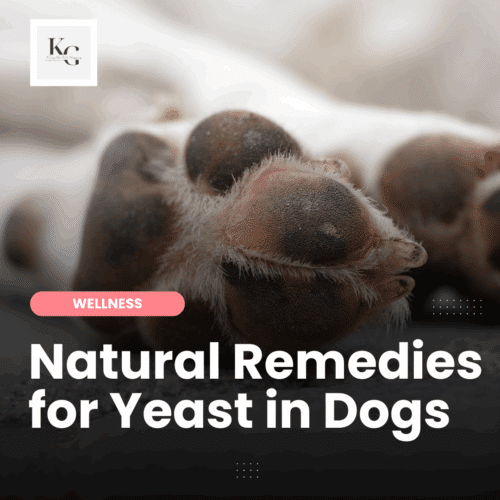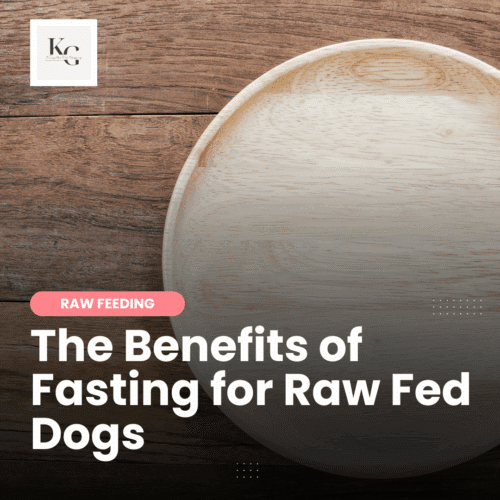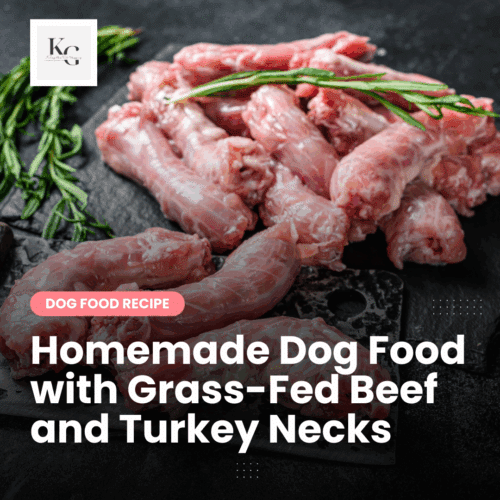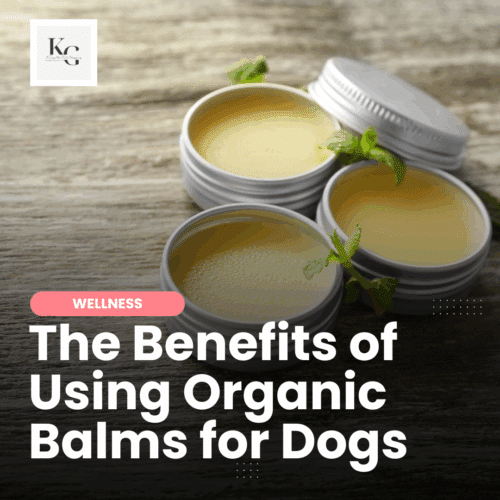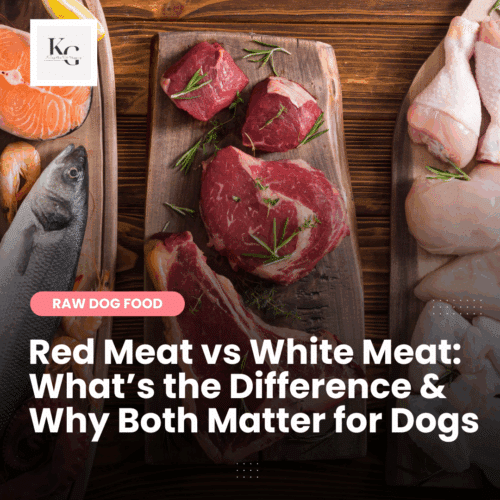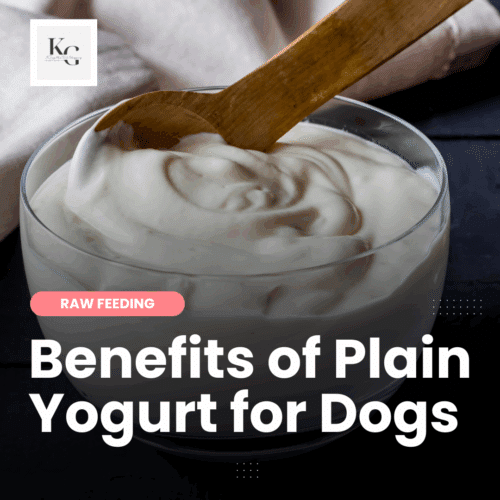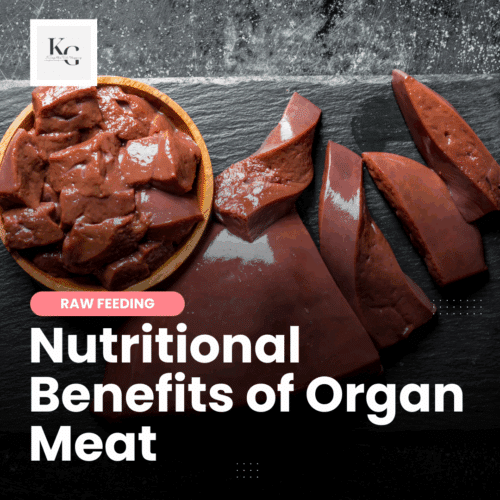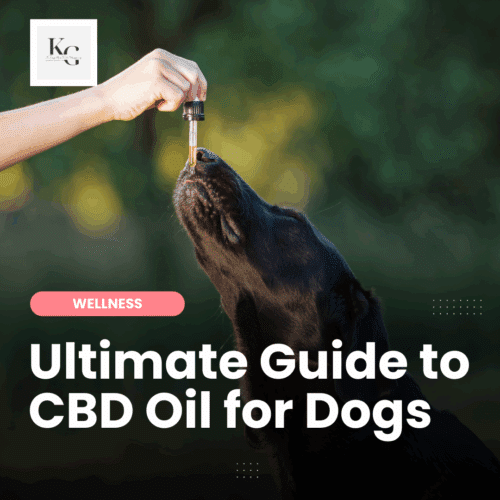Keep the Tail Wagging is supported by pet parents. I occasionally earn a commission (at no additional cost to you) when you click through an affiliate link to one of my favorite products. Thank you for your support. Read More
Should we feed raw eggs to dogs? Absolutely! I feed eggs to my dogs at least four days weekly. Initially, I cracked a raw egg over their meals; today, I feed them in various styles because the nutrient values of eggs don't change much when cooked. In this article, I will share the benefits of raw eggs for dogs, how they change when we cook or freeze them, and the risks we should be aware of before adding eggs to a dog's diet.
Benefits of Feeding Raw Eggs to Dogs
Eggs are a nutrient-rich food, containing proteins, vitamins, minerals, fatty acids, and more. Many people consider them a perfect food, often referring to them as “nature’s multi-vitamin”. Feeding raw eggs to dogs comes with the following benefits:
- High-Quality Protein: Eggs are an excellent source of high-quality protein, containing all the essential amino acids dogs need for optimal health, muscle development, and tissue repair.
- Nutrient-Rich: Raw eggs are packed with essential nutrients such as vitamins A, D, E, and B12, riboflavin, folate, iron, and selenium. These nutrients contribute to your dog's overall health and well-being.
- Healthy Skin and Coat: Eggs contain omega-3 and omega-6 fatty acids, which are beneficial for maintaining healthy skin and promoting a shiny coat.
- Digestive Health: Raw eggs can provide digestive benefits due to their natural enzymes, which may help improve digestion and nutrient absorption.
- Boosted Immune System: Eggs contain various nutrients, vitamins, and antioxidants that support your dog's immune system, helping them stay healthy and better defend against infections and diseases.
- Muscle Development: The high protein content in raw eggs can aid in muscle development and maintenance, especially for active dogs or those in muscle-building phases.
- Increased Energy: The combination of protein, fats, and vitamins in raw eggs can provide a natural energy boost for dogs, which can be particularly beneficial for high-energy breeds or dogs involved in regular physical activities.
Feeding Raw Eggs to Dogs: The Nutrients
Eggs are a nutrient-dense food and contain a wide range of essential nutrients. Here are the key nutrients found in eggs:
- Protein: Eggs are an excellent source of high-quality protein. A large egg typically contains around 6 grams of protein.
- Vitamins: Eggs are rich in various vitamins, including:
- Vitamin A: Important for vision, immune function, and cell growth.
- Vitamin D: Plays a vital role in bone health, immune function, and calcium absorption.
- Vitamin E: Acts as an antioxidant and helps protect cells from damage.
- Vitamin B12: Essential for nerve function, DNA synthesis, and red blood cell production.
- Riboflavin (Vitamin B2): Helps convert food into energy and supports healthy skin and eyes.
- Folate (Vitamin B9): Crucial for cell growth, DNA synthesis, and red blood cell formation.
- Minerals:
- Iron: Important for carrying oxygen in the blood and preventing anemia.
- Selenium: Acts as an antioxidant and supports the immune system.
- Phosphorus: Plays a role in bone health, energy metabolism, and cell function.
- Zinc: Necessary for immune function, wound healing, and protein synthesis.
- Fatty Acids: Eggs contain a moderate amount of healthy fats, including omega-3 and omega-6 fatty acids, which are beneficial for brain function, heart health, and reducing inflammation.
- Choline: Eggs are an excellent source of choline, an essential nutrient important for brain development, memory, and liver function.
- Lutein and Zeaxanthin: These antioxidants found in eggs are beneficial for eye health and may reduce the risk of age-related macular degeneration.
Remember that the nutrient content may vary slightly depending on factors such as egg size, preparation method, and the hen's diet.
Feeding Raw Eggs to Dogs, or Cooked?
As a raw feeder, it's natural to think I feed raw eggs to dogs. However, I feed both raw and cooked eggs to my dogs. I began cooking them out of concern for the biotin blocker in the egg whites. I'm not convinced it's a big concern, but I continue to cook eggs because it's also a way to warm up their food (I prefer not to feed cold raw to my dogs). People often worry that cooking food decreases the nutrients, but when you cook eggs, the nutrient values don't change much.
Nutritional Breakdown of Eggs
- Raw Eggs (per large egg): Approximately 72 calories, 6 grams of protein, 5 grams of fat, 0.3 grams of carbohydrates, vitamins A, D, E, and B12, riboflavin, folate, iron, and selenium.
- Scrambled Eggs (made with no additional ingredients): Similar nutritional value to raw eggs, with slight variations due to the cooking process.
- Eggs Over Easy/Sunnyside Up: Similar nutritional value to raw eggs, with slightly higher fat content due to the cooking method.
- Boiled Eggs (hard-boiled): Approximately 78 calories, 6 grams of protein, 5 grams of fat, 0.6 grams of carbohydrates, same vitamins and minerals as raw eggs.
- Poached Eggs: Similar nutritional value to boiled eggs, with no added fat from cooking oil or butter.
When cooking eggs in a pan, I use a small amount of virgin olive oil or CocoTherapy coconut, or MCT oil.
Freezing Raw Eggs
If you feed raw eggs to dogs, you may have noticed that egg prices are insane, especially if you want to organic, pasture-raised chicken eggs. I buy eggs from a friend who raises chickens, picking up three or four dozen at a time. But what if I scored ten dozen?
I would freeze them. Freezing eggs is great for small dogs, too. If a single chicken egg is too much for a dog, freeze the eggs to make it easier to serve the appropriate amount to your dog.
You can freeze raw or cooked eggs, but cooking them before freezing is recommended. To freeze eggs…
- Crack them into a bowl and gently beat them.
- Transfer the beaten eggs to a freezer-safe container or ice cube tray.
- Label the container with the date and number of eggs.
- Use within four to six months for best quality.
- Thaw frozen eggs in the refrigerator before feeding them to your dog.
The texture of the eggs changes when you freeze them, but my dogs don't mind.
Comparing Chicken Eggs to Other Eggs
When comparing pasture-raised chicken eggs to quail eggs, duck eggs, turkey eggs, and goose eggs, there are differences in size, nutrient composition, and taste. Here's a comparison of these eggs:
Comparing the Size of Different Eggs
- Chicken Eggs: The most common and widely available, typically medium to large in size.
- Quail Eggs: Smaller than chicken eggs, about one-fifth the size.
- Duck Eggs: Larger than chicken eggs, similar to jumbo-sized chicken eggs.
- Turkey Eggs: Larger than chicken eggs, typically about twice the size.
- Goose Eggs: The largest of the common domesticated bird eggs, significantly larger than chicken eggs.
Comparing the Nutrient Composition of Different Eggs
- Chicken Eggs: Good source of protein, vitamins (A, D, E, B12), minerals (iron, selenium), and choline.
- Quail Eggs: Similar nutrient profile to chicken eggs, but with higher protein content and a slightly different vitamin and mineral composition.
- Duck Eggs: Higher in fat and cholesterol than chicken eggs, rich in protein, vitamins (A, D, E, B12), and minerals.
- Turkey Eggs: Similar nutrient profile to chicken eggs but larger in size, so they contain more of each nutrient overall.
- Goose Eggs: Higher in fat and cholesterol than chicken eggs, rich in protein, vitamins (A, D, E, B12), minerals, and choline.
It's important to note that each type of egg has its own unique nutrient profile, and the exact composition can depend on factors such as the bird's diet, environment, and husbandry practices. Regardless of the type of egg, it's important to handle, cook, and store eggs properly to ensure food safety.
Where I Source Raw Eggs for My Dogs
I primarily feed chicken eggs. Occasionally, feed quail eggs, but that's it.
- I get chicken eggs from local farms (my friends), Vital Farms from the grocery store, and pasture-raised organic eggs from Costco
- I get quail eggs from local ethnic markets
- I don't buy duck eggs, because I'm allergic; my dogs can eat them, but I cringe when I think about them
- FUNctional Toppers from Northwest Naturals
Feeding Eggshells to Dogs
Some dog owners feed the entire egg, including the eggshells. The shell doesn't cut up a dog's mouth (remember, our dogs are used to eating raw bones). I don't feed the shells or pull out the membrane (which some feed to support joint health); instead, I dry them out and grind the shells into a powder.
I use the eggshell powder as additional calcium for puppies (only eggs from local farms) and to enrich my garden soil. I don't use grocery store eggshells in my dogs' diet because I don't know what's used to clean the eggs.
Warnings About Feeding Raw Eggs to Dogs
While raw eggs are a healthy addition to the diet, there are a few things pet owners should be aware of when feeding raw eggs to dogs.
- Biotin Blocker: The egg whites act as a biotin blocker, so it's not recommended to feed egg whites only. There is mixed information about how “at risk” our dogs are, with some believing it's only an issue if we feed multiple eggs daily. Cooking eggs deactivates the biotin blocker in the egg whites.
- Salmonella: Raw eggs may contain salmonella. While dogs can handle salmonella thanks to properties in their saliva and an acidic gut, it's essential to be aware in case the bacteria might aggravate a health condition. Cooking the eggs decreases the risk.
- Allergies: Some dogs may have allergies or sensitivities to eggs; however, a chicken sensitivity doesn't always equate to a chicken egg sensitivity. When introducing eggs, watch out for adverse reactions such as itching, vomiting, or diarrhea. Fun fact: I'm allergic to duck eggs and will have an immediate response if I eat them.
- High Cholesterol: Eggs have relatively high cholesterol content, and excessive consumption may not be suitable for dogs with specific health conditions, like pancreatitis or hyperlipidemia. Consult your veterinarian for advice tailored to your dog's health.
I began feeding raw eggs to dogs when I fed kibble; and continued when I transitioned to raw. My dogs have all done well on eggs; even dogs with a chicken sensitivity, which isn't the case for all dogs. If you have a concern, go slowly and stop if you notice that your dog is experiencing a negative reaction.




